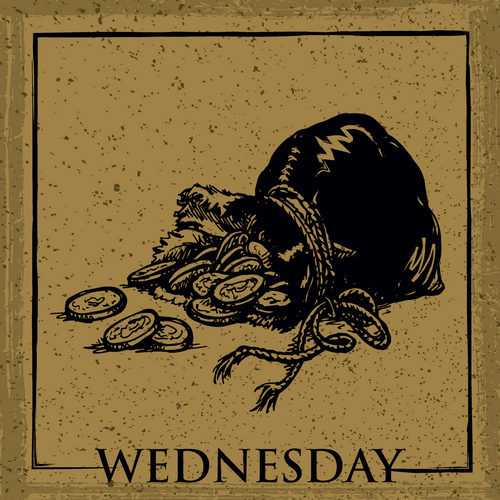
by Dr. Michael Claxton, professor of English
As dawn breaks on the fourth day of Holy Week, three men are moving closer to a monumental choice. One, toward sacrifice. Two, toward betrayal. Though Scripture doesn’t specify, Wednesday is traditionally seen as the day an apostle made his bargain with the enemies of Christ.
As we read in Matthew’s account, “Then one of the 12 — the one called Judas Iscariot — went to the chief priests and asked, “What are you willing to give me if I deliver him over to you?” So they counted out for him 30 pieces of silver. From then on Judas watched for an opportunity to hand him over.”
It was a heartbreaking sellout. Jesus had welcomed his friend into the inner circle, taught him eternal truths about God, modeled what it means to live out a life of compassion and showed him wonders beyond belief. Judas saw blindness cured, death overcome, the forces of nature commanded to submit.
He knew how the Lord felt about the love of money. He had sat on a hillside as Jesus told crowds not to lay up treasures on earth. He had heard him tell a wealthy young man to sell all he had. He had listened as Jesus praised a woman for giving a pittance to God, while rich men made a show of their charity. He had seen him point to Caesar’s picture on a coin as an object lesson to a man who clearly wanted to hold onto more of them.
He had watched Jesus stand by as an expensive vial of perfume was emptied on his feet. And just two days before, he had seen the Lord in a rare burst of anger, flipping tables as he denounced those who tried to exploit the temple for gain.
And Judas still betrayed his master for a bag of money.
It wasn’t a complete surprise. Jesus had predicted it. John tells us Judas was a thief. But it still hurt. Even the most charitable view — that Judas wanted to force Jesus to take power — shows that he never truly got what his Lord was doing.
On Wednesday, Peter was also inching toward betrayal, but his was not premeditated. It would be impulsive, a reaction of fear and confusion. The man who would later encourage others to “always be ready to give an answer” was not prepared to stand his ground when questioned about his loyalty to Christ. Three times he denied even knowing the man. And Jesus heard him.
Two acts of treachery. Both men would deeply regret what they had done — one with bitter tears, the other with a length of rope. Thus, only one would go on to be a mighty warrior for the king. Only the one who believed in forgiveness.
And Jesus? Scripture is silent on what he did on Wednesday. Perhaps he rested from the vigorous days before. Surely, he prayed. His heart must have ached. He knew what Peter would do. He knew what Judas would do. But most of all, he knew what he would do.
He would die to redeem us all. He would die for Peter and Judas. He would die for that sweet, trusting lady with her coins in the temple. He would die for the woman who wiped his feet with perfume. He would die for the moneychangers, the chief priests and the soldier who drove nails into his body. And for me.
If tradition is right, and the midpoint of Holy Week witnessed the triumph of humanity’s worst impulses, then it is because of Wednesday that the world needed Friday.
Praise God.